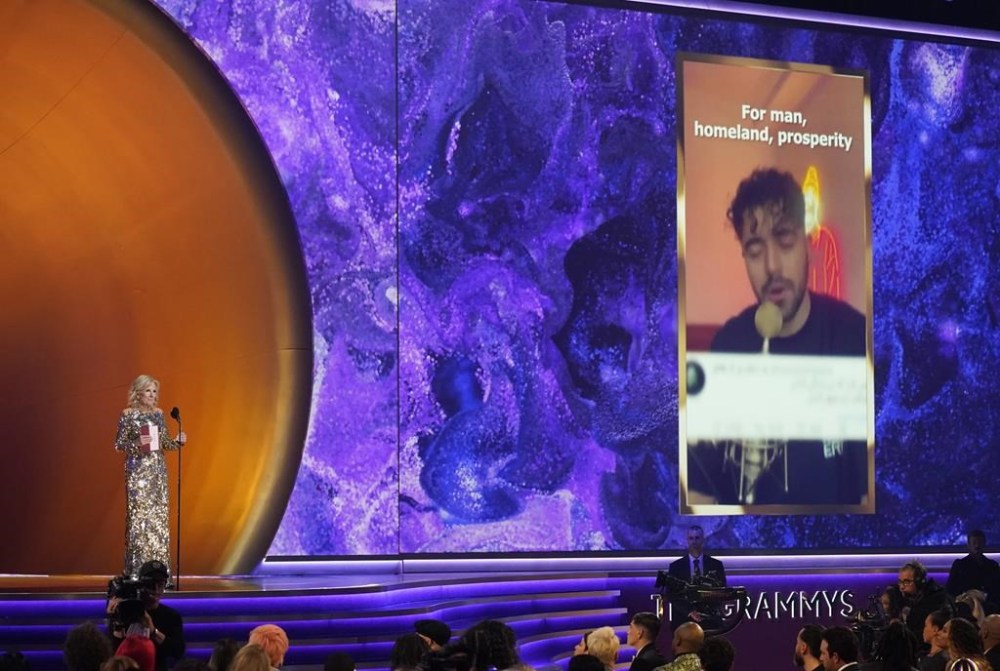Iran pardons Grammy Award winner whose song became an anthem to the 2022 protests
Advertisement
Read this article for free:
or
Already have an account? Log in here »
To continue reading, please subscribe:
Monthly Digital Subscription
$0 for the first 4 weeks*
- Enjoy unlimited reading on winnipegfreepress.com
- Read the E-Edition, our digital replica newspaper
- Access News Break, our award-winning app
- Play interactive puzzles
*No charge for 4 weeks then price increases to the regular rate of $19.00 plus GST every four weeks. Offer available to new and qualified returning subscribers only. Cancel any time.
Monthly Digital Subscription
$4.75/week*
- Enjoy unlimited reading on winnipegfreepress.com
- Read the E-Edition, our digital replica newspaper
- Access News Break, our award-winning app
- Play interactive puzzles
*Billed as $19 plus GST every four weeks. Cancel any time.
To continue reading, please subscribe:
Add Free Press access to your Brandon Sun subscription for only an additional
$1 for the first 4 weeks*
*Your next subscription payment will increase by $1.00 and you will be charged $16.99 plus GST for four weeks. After four weeks, your payment will increase to $23.99 plus GST every four weeks.
Read unlimited articles for free today:
or
Already have an account? Log in here »
Hey there, time traveller!
This article was published 23/09/2024 (444 days ago), so information in it may no longer be current.
DUBAI, United Arab Emirates (AP) — An Iranian Grammy Award winner said on Monday he was pardoned from serving a three-year sentence over his song that became an anthem to the 2022 protests that rocked the country following the death of Mahsa Amini in police custody.
Shervin Hajipour, who was presented his Grammy in 2023 by U.S. first lady Jill Biden, uploaded a video story on Instagram, looking overcome with emotion and saying: “A new order had been issued regarding amnesty, and it included my case which has been completely dismissed, adding he learned about the case dismissal on Sunday.
His song, “Baraye,” or “For” in English, begins with: “For dancing in the streets,” “for the fear we feel when we kiss.” The lyrics list reasons that young Iranians posted online for why they had protested against Iran’s ruling theocracy after Amini died for not wearing her mandated headscarf to the liking of security forces.

The protests quickly escalated into calls to overthrow Iran’s clerical rulers. A subsequent security crackdown killed more than 500 people, with more than 22,000 detained.
On Friday, Iran’s Supreme Leader Ayatollah Ali Khamenei pardoned and commuted the sentences of 2,887 prisoners. It is unclear whether Hajipour’s case was part of the amnesty order.
Two months ago, Hajipour announced that he was ordered to head to prison to serve a sentence of three years and eight months which a court handed him in March. He had already served some prison time but was out on bail in 2023 pending the court’s decision

